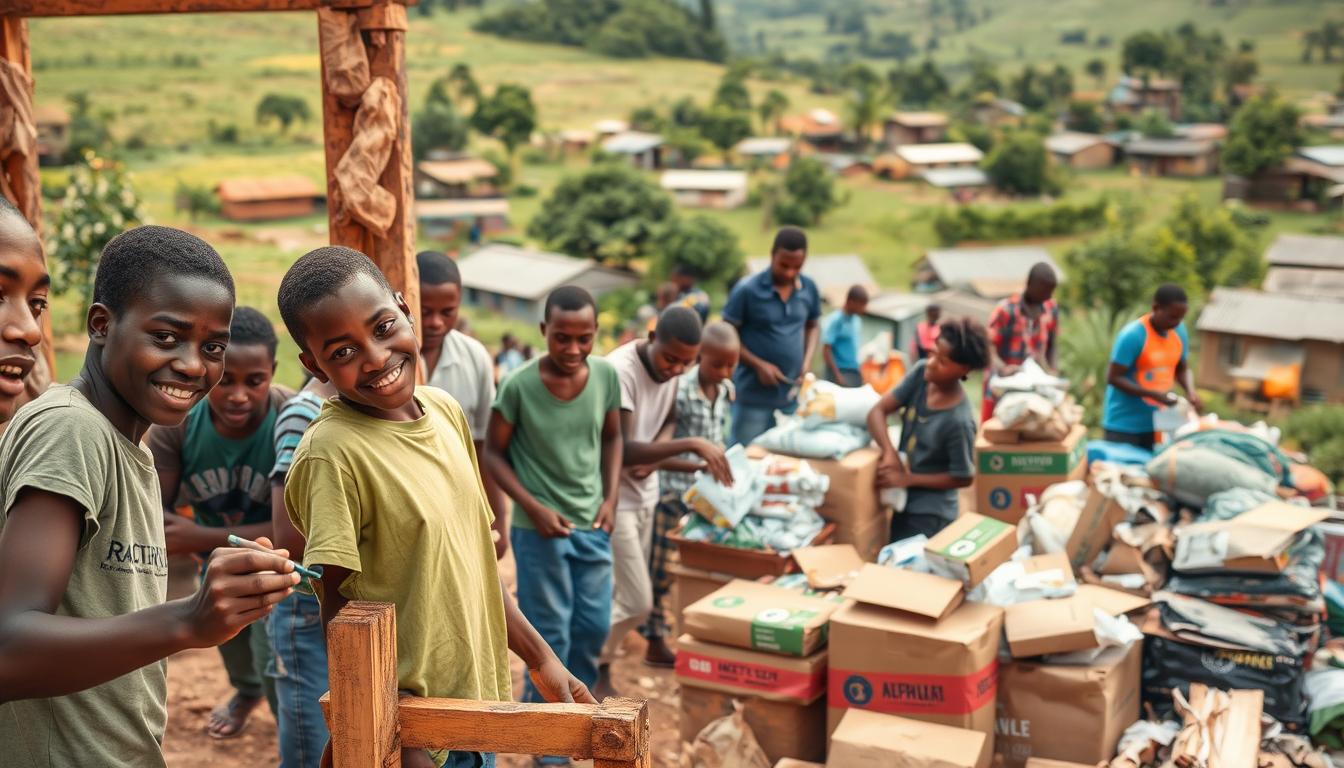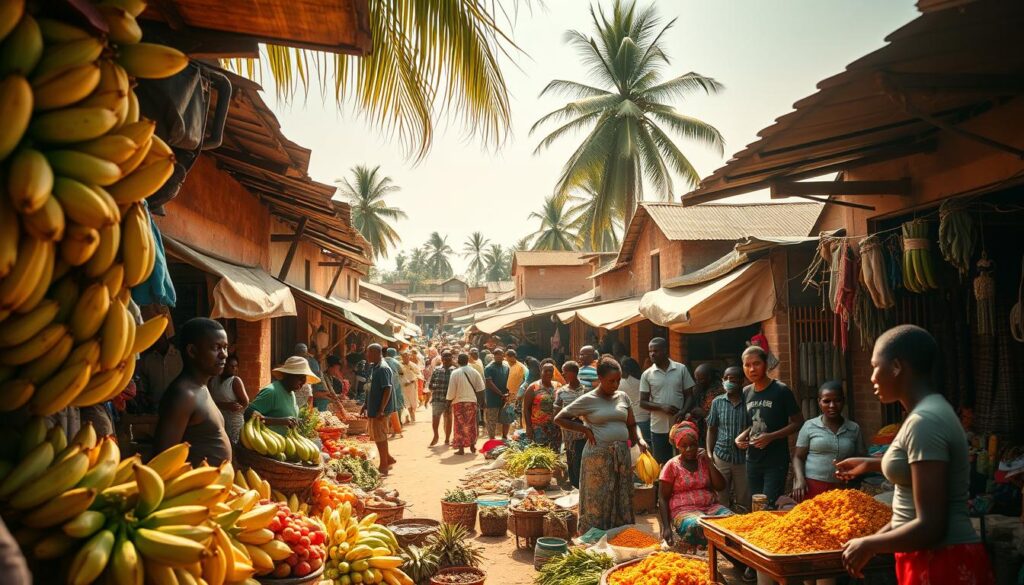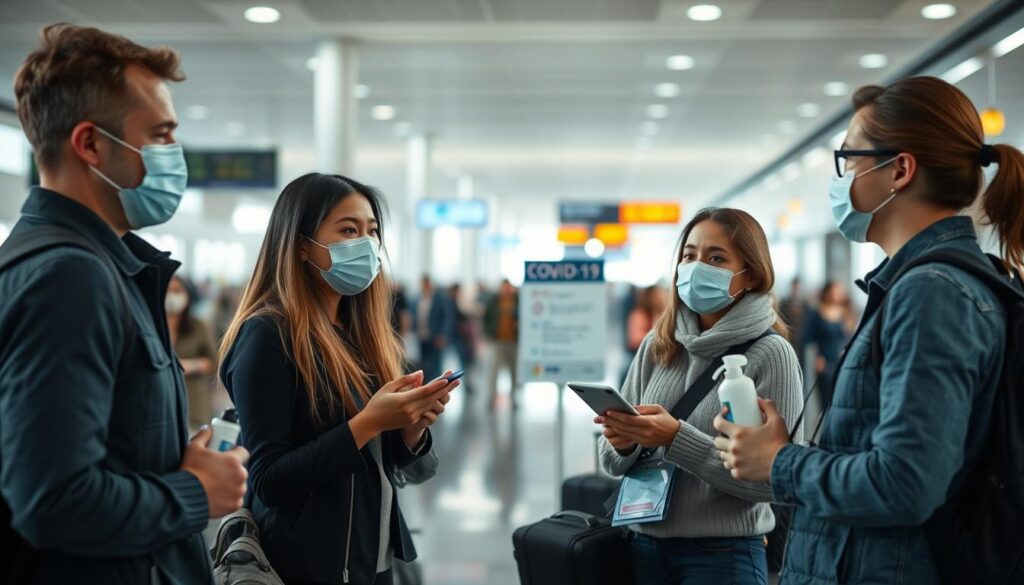Physical Address
30 N Gould St Ste N Sheridan, WY 82801
Physical Address
30 N Gould St Ste N Sheridan, WY 82801


Ever thought you could help a community while traveling without spending a lot? I did just that in Ghana, and it was amazing. You can make a big difference without breaking the bank. It’s all about finding the right opportunities and connecting with the local culture.
Let’s look at how to find cheap volunteer programs in Ghana. This way, your work will have a lasting impact.
Looking into the costs of volunteering in Ghana can open your eyes. Many things affect how much you’ll spend. Some programs cost more because they offer more support and quality services. Knowing this helps you plan your budget better.
Volunteer program prices can really differ. Programs with higher fees often give you more support. This includes training, a place to stay, and help while you’re there. They make sure you’re safe and supported, which can be worth the extra cost.
On the other hand, cheaper options might not offer these things. This can change your volunteer experience a lot.
When you’re planning to volunteer, it’s good to know what you’ll spend. Here’s a breakdown:
| Expense Type | Estimated Cost (USD) |
|---|---|
| Program Fees | 200 – 2,000 |
| Accommodation (per month) | 150 – 500 |
| Food (per day) | 5 – 15 |
| Local Transportation (per week) | 10 – 50 |
| Miscellaneous Expenses | 50 – 200 |
Knowing how much you can spend is key for a good volunteer trip. It’s important to research different programs to see what they include. Don’t forget to add extra money for surprises, as they can happen.
Being flexible and realistic with your budget can make your volunteer time rewarding. It won’t break the bank.
Looking for volunteer work in Ghana is a chance to help others and save money. Many groups offer affordable ways to volunteer. This way, I can help without spending too much.
In Ghana, many groups help communities at low cost. They teach kids, help in hospitals, and protect the environment. These groups are clear about their NGOs Ghana budget, showing they are honest.
Working with local NGOs is a great way to volunteer affordably. Groups like STAESA focus on community help and charge less. This lets me really get to know the culture and help those who need it most.
Work exchange programs in Ghana are another good option. I can volunteer and get food and a place to stay for free. This helps both me and the community, and I learn a lot about Ghana.
Looking into volunteering in Ghana shows many low-cost options. These chances let people help out and gain valuable experiences. Programs in education, healthcare, and community development often don’t charge a lot.
Many teaching volunteer Ghana projects let you work with local students. They aim to boost education and share cultures. You can join these without paying, making it perfect for those who want to teach.
Helping out in medical and healthcare is crucial for local hospitals. Medical volunteer Ghana programs let you help doctors and nurses. Many of these are free or very cheap, so those with medical skills can help out.
Working on community projects has a big impact. You can help in many ways, like saving the environment or supporting women. These free volunteering Ghana projects make it easy for everyone to help without spending money.
| Volunteering Type | Cost | Impact |
|---|---|---|
| Teaching Programs | No Fee | Enhanced Educational Outcomes |
| Medical Volunteering | Low Cost | Improved Healthcare Services |
| Community Development | No Fee | Strengthened Local Initiatives |
Finding the right place to stay is key for a good volunteer experience. Options like budget homestay Ghana, volunteer houses, and long-term stays can save money. They also help you connect with the local culture.
Living with a local family is a great way to save money. Many families in Ghana want to share their culture and food. This helps you learn about local traditions and save money.
Volunteer houses offer a community feel and shared living. This way, you can split costs and meet others. You’ll enjoy meals and activities together, making lasting friendships.
For longer stays, finding long-term accommodation is smart. Look into renting a room or apartment. This can save money and offer comfort. Use local sites, community boards, or friends to find deals.
| Accommodation Type | Cost Estimate (per month) | Benefits |
|---|---|---|
| Homestay | $300 – $500 | Authentic experience, meals included |
| Volunteer House | $250 – $400 | Community living, shared expenses |
| Private Room in Apartment | $200 – $350 | More privacy, flexibility |
Finding ways to fund my volunteer experience can be tough. I found many ways to cover costs and make my journey meaningful. Online platforms for fundraising and volunteer scholarships are great resources. Working and volunteering at the same time helps keep my finances stable.
Fundraising for volunteering is very rewarding. Sites like GoFundMe and Kickstarter let me share my story. Events like bake sales and garage sales also work well.
These methods not only raise money but also build community support.
Looking into grants and scholarships has opened doors for me. The Peace Corps and GlobalGiving offer financial help and resources. Finding grants for my specific volunteer work helps a lot.
It’s key to balance paid work and volunteering. I found part-time jobs and freelance work that fit my schedule. This way, I can volunteer and still keep my finances stable.
Living in Ghana on a budget is exciting. It lets me dive into the local culture while saving money. Daily life in Ghana is full of unique experiences, especially in food, transport, and talking to people.
Planning meals on a budget is key to eating well without spending too much. Local markets have fresh food at good prices. I choose meals based on what’s in season to save money.
Cooking at home saves money and lets me try traditional dishes. A weekly meal plan helps me use my grocery money wisely and avoid spending too much.
Using local transport can cut down travel costs. Shared taxis, or “trotros,” are cheap and a great way to meet people. Buses are also affordable for longer trips, helping me explore while staying within my budget.
It’s important to stay in touch, especially with volunteers and family. Local SIM cards offer cheap data plans. Messaging apps are good for keeping costs down while staying connected. Internet cafes are available for when I need a fast or reliable connection.

| Expense Category | Estimated Monthly Cost (USD) | Budget Tips |
|---|---|---|
| Food | 150 | Buy from local markets; cook at home |
| Transportation | 50 | Use trotros for short distances |
| Communication | 30 | Purge unused apps; consider local SIM |
By planning meals, using local transport, and keeping communication costs low, I enjoy Ghana’s daily life without breaking the bank. This way, I can fully enjoy my volunteer work and help the community.
Finding the right balance between volunteering and exploring Ghana is key. I found many ways to make my experience better. With planning, I enjoyed cheap weekend trips, stayed longer to explore, and found volunteer spots in different places.
Weekend trips are great for seeing new places while volunteering. Places like waterfalls, wildlife reserves, and markets are cheap. Using public transport or traveling with a group helps save money and enjoy the culture.
Think about staying longer in Ghana to see more without spending too much. Look for cheap places to stay and eat local food. A few extra days let you dive deeper into Ghana’s culture and hospitality.
Every region in Ghana offers unique volunteer chances. From Northern Ghana’s projects to coastal work, there’s a lot to choose from. Researching helps match your interests and travel plans for a fulfilling experience.
Learning about the local culture in Ghana is key to a great volunteering experience. Knowing the language and community helps me connect with people. There are many ways to do this without spending a lot of money.
Learning the local language shows respect and enriches my experience. Simple phrases can lead to deep conversations. I use free resources like language exchange groups and apps to learn without spending money.
Joining community events is a great way to meet locals. These events are often free and let me see the culture up close. By taking part in festivals, markets, or clean-ups, I make friends and create memories.
Building friendships is central to cultural integration in Ghana. Sharing meals and attending local events helps me connect. When locals see I’m interested in their lives, they open up. This creates a sense of belonging and support.
Going to Ghana for volunteering needs careful planning. You must think about what to bring and what to buy. It’s also important to know about visa rules and health tips.
Some things are better to bring from home. Others are cheaper to buy when you get there. Here are some essentials to bring:
But, you can buy clothes and basic things when you arrive. This helps with your budget.
First, get the right visa for volunteering in Ghana. A volunteer visa lets you work on projects legally. Also, you might need to extend your visa if your plans change.
Knowing the visa rules helps you have a worry-free trip.
Staying healthy is key while volunteering. You can take steps to stay safe without spending a lot:
Planning for these health steps helps you stay safe and focused on your work.

When I started volunteering in Ghana, I learned that being ethical is key. It’s important to make sure our help is truly needed. I wanted my efforts to make a real difference and help people, which is the heart of sustainable volunteering.
Looking at the community’s needs and matching them with what I could do made my time there valuable. This approach made my experience both meaningful and rewarding.
Finding the right volunteer programs was a big part of my journey. I had to avoid programs that might hurt the local people. I looked for organizations that care about the community and use sustainable methods.
It’s important to respect local knowledge and traditions. This way, we can build strong, lasting partnerships that help everyone.
Even with a small budget, I found that I could still make a big difference. Working with local NGOs and focusing on projects driven by the community helped a lot. It’s not about spending a lot of money. It’s about being thoughtful and making a real impact.
My experiences showed me that volunteering can lead to lasting change. This is especially true when we listen to and work with the community we’re helping.